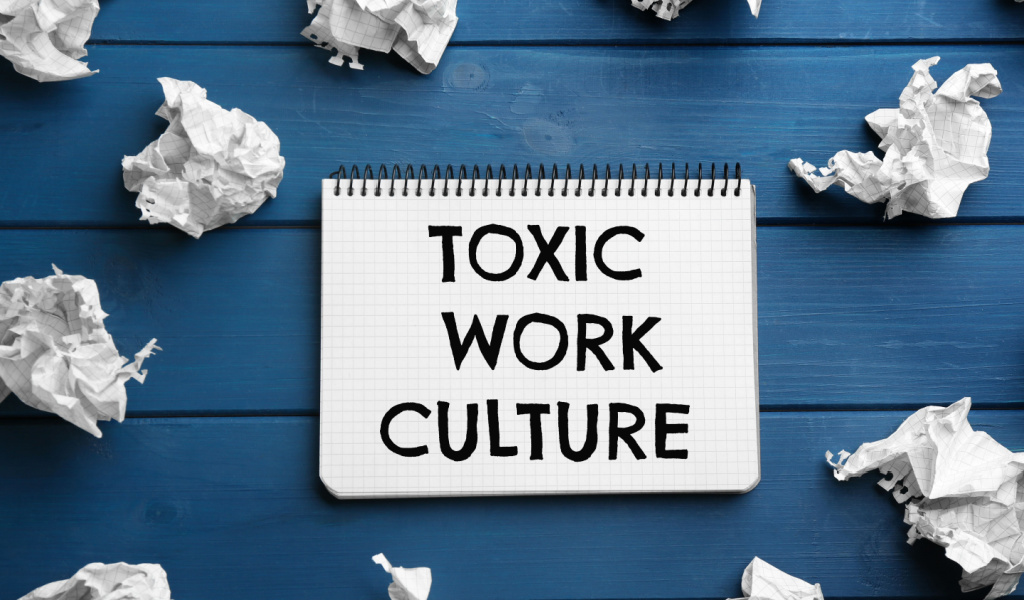Looking for a job can be challenging. Not only are you looking for a position that provides meaningful opportunities and a good salary, but you are also likely hoping to find a place to be comfortable and enjoy yourself.
The last thing you’ll want is to land in a toxic environment! A toxic workplace is a dysfunctional professional environment. Maybe the boss is a blowhard, or the co-workers are unproductive and unsupportive. A toxic workplace can put employees under immense pressure to fulfill unrealistic expectations or work in uncomfortable situations. Considering the fact that stress is the leading cause of health problems in the workplace, it is something you should be concerned about.

But how do you gauge whether a workplace is toxic before working there? Thankfully, there are a few red flags that you can look out for during the interview process. Here are some signs of a toxic workplace to keep an eye out for:
Confusing Job Listings/Descriptions
The purpose of a job listing is to give potential employees an idea about what their role in the company would be. But some companies tend to make job listings seem like a complex puzzle that needs to be solved!
Vague job descriptions and buzzwords in the job description will only confuse colleagues since roles aren’t properly defined. Phrases like “fast-paced environment” and “competitive workforce” will give you an idea about the company’s corporate culture. It’s essential to thoroughly read and decode the job listing because that’s your first clue as to what working there will be like.
At the same time, you should also be vigilant about the “bait and switch” where the job you thought you were interviewing for (based on the listing) differs significantly from what you’re hearing during the interview.
Constant Reschedules & Drawn Out Interviews
Understandably, something may occur that your interviewer needs to reschedule once (or twice), but any more than that, and that’s a red flag! Not only does it show a disorganized workplace, but it’s also a sign that the company does not value your time or is unaware of the competitive job market hungry for talent.
The same goes for long, drawn-out interview processes. It’s only natural that your future employer will want to ensure that you are competent and the best fit for the role, but an interview process that always seems to continue is a sign of a toxic workplace. Of course, this will also depend on the seniority of the position, but you should be able to gauge whether it is appropriate or not. Regardless, if there are 12 or more interviews – that’s too many!
Too Many Perks
Landing a job with a salary well above the market standard can feel like a dream come true, but you should be aware that it doesn’t end up in a nightmare. If the compensation seems too good to be true, it may be just that. An inflated salary may include unrealistic expectations, too much pressure to perform, and long working hours. To ensure you’re not falling into a trap, ask as many questions about your expectations, responsibilities, and work timings.
It would help if you also looked at the perks offered. Free food and an entertainment center in the office sound great, but if the bonuses are designed to keep you at work longer, they’re not that great, after all!
Unhappy Employees
Employees define a company, so there’s no better place to find out if the workplace is toxic. If you’re having an in-person interview, ask them if you can tour the office. Speak to as many people as you can – this will help you gauge the mood of those who work there. If the employees seem dull, demotivated, or stressed, this is a red flag. It’s possible that they are overworked, underappreciated, or burnt out. Try to watch how colleagues talk to and address each other. Ideally, you’d want to work somewhere with open communication and good teamwork.
Another way to learn about a company’s work culture is to look at the turnover rates. High turnover rates indicate that a company’s employees are dissatisfied and ready to take the first chance they get to leave. Reasons for high turnover include insufficient pay, poor opportunities for development/growth, and a negative office culture.
You can learn about the turnover rates and workplace culture by researching the company before your interview. Online research is your friend – especially if you are interviewing virtually or aren’t personally connected with someone else who has worked for the company. Check news articles and websites like Glassdoor and Indeed, where employees leave feedback and reviews about the companies they work for.

A Predominantly Young Workforce
If the place you’re interviewing seems to have a predominantly young workforce, it may indicate that the company does not value its employees. For one, younger employees have less experience and are therefore paid less. It could also mean that the management is looking for people with few other priorities, such as spouses or children.
While it may seem fun to work among your peers, it may not be the best decision for your personal and professional life in the long term. When it comes time to negotiate a raise or when other priorities come into your life, the company may decide you’re not worth the trouble!
A Demanding Boss
Some bosses are proud of how hard they work for their employees, and some of them even announce it like some achievement during the interview. You may think that working for a boss who expects the best from you is a good thing, but a manager telling you that their leadership style is demanding means there is a good chance that you might be under a lot of pressure at work. A good leader not only motivates their employees but also acts with compassion. Someone who can’t stop talking about how they “have high standards” or “expect the best from myself and my team” may not be one.
You Have a Feeling
We’ve all got an internal system that indicates when things don’t seem right. I’m talking about that gut feeling, of course! Whatever the pros and cons of a job, if your gut tells you that you should walk away, the best thing would be to trust it. Who knows, it might have just saved you from being stuck in a toxic workplace!



